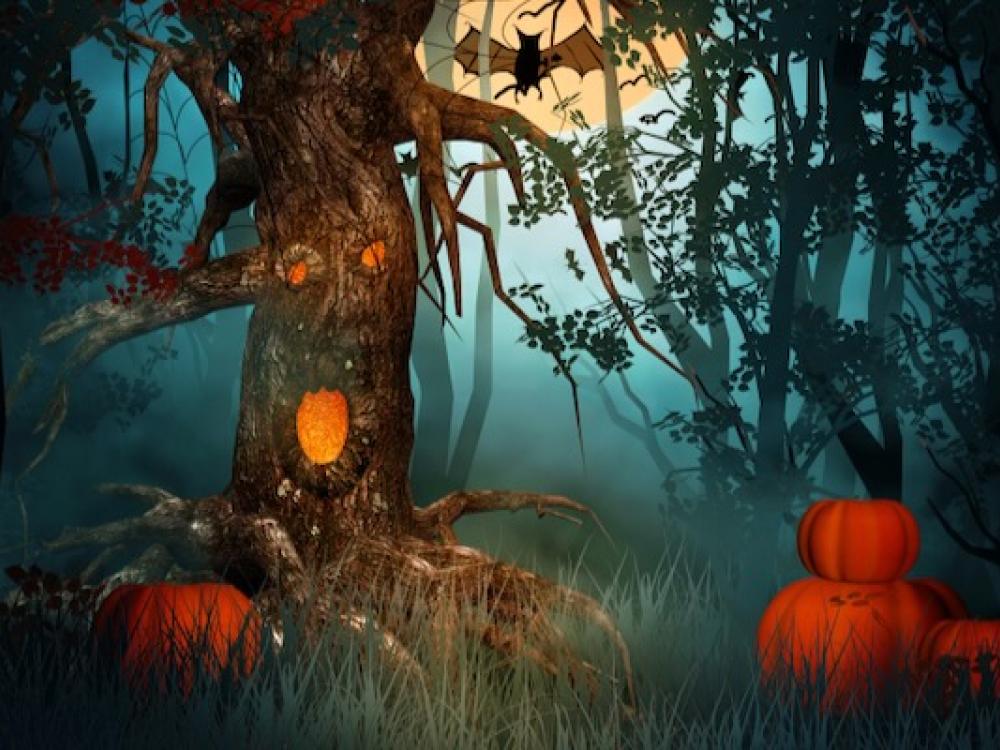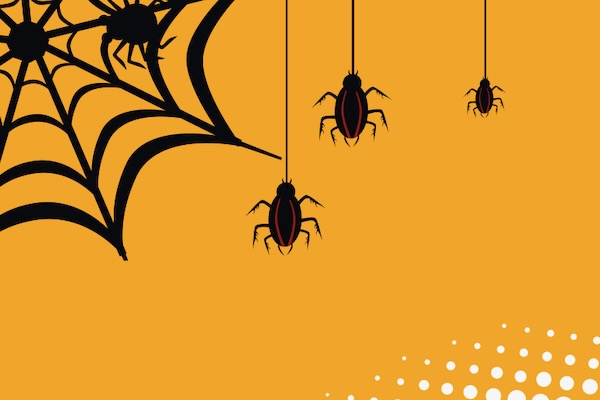
Wendel Withrow, the author of "The Best of Tent Camping: Texas," shares his tips for overcoming first-time campers' fears. Courtesy of Storyblocks.
Oct. 24, 2023
The heart and soul of any outdoor experience is the connection we make with the natural beauty that surrounds us. While many park visitors are content with the drive-through experience, it takes just a little more effort and a willingness to venture outside your comfort zone to turn that drive-by glimpse through the windshield into a life-enriching adventure.
I'm talking about tent camping.
Unfortunately, many of our park visitors are reluctant to leave the climate-controlled world. Of the millions of visitors to Texas State Parks, only a small percentage spent the night in a tent. According to the North American Camping Report, 60 percent of first-time campers choose to stay in RVs, cabins and other accommodations.
For those who are tent camping-curious but still apprehensive, I hope this article will address some of your concerns and inspire your first night under the stars of Texas.
THE FIRST STEP
When you enter one of our great Texas State Parks, it only takes a glance at the park map to read the names of those enticing destinations marked as tent camping areas.
Even if you are not camping on this trip, drive — or better yet — take a walk into tent-only areas like Buzzard's Roost at Enchanted Rock State Natural Area or Cottonwood Cove at Meridian State Park.
Smell the campfires, ponder the towering trees and meet the friendly tent campers and you will be tempted to take that first step as an up-close and personal nature lover, not just a spectator.
THE WILDERNESS NOVICE
 Courtesy of Storyblocks.
Courtesy of Storyblocks.
The first camping trip is always a scary but exhilarating adventure.
My first trip was with a rag-tag group of students. We were all newbies who had signed up for a beginning camping trip in the Hill Country of Texas in what we imagined was the utterly untamed wilderness of Pedernales Falls State Park, west of Austin.
Everyone was prepared, having purchased or borrowed enough equipment for a week-long trek, including very heavy high-top leather boots, suitable only for looking like a real hiker, not for hiking.
The first day went well. Campers all arrived. None were lost on the well-marked trail.
Reasonably edible food was consumed and the low-tech tents were erected with help of a manual’s step-by-step instructions.
Then it was time to turn in. Sleep came fast and deep, but it did not last.
The scream was blood chilling and very close. We all froze in our tents. Then another round of bone-penetrating howls. We all knew it was the end. Our first camping trip would be our last.
The savvy trip leaders determined it was an animal sound not a fellow camper being skewered.
We fumbled for army surplus flash lights. Surely it was a mountain lion prowling the area. The creatures were fighting over something — a dead deer or other helpless creature?
With palpable fear, we turned the lights toward the direction of the marauders, expecting to see wild cat eyes staring back at us.
Our beams fell on the culprits — a couple of very large over-fed raccoons quarreling over some leftover food carelessly left unsecured.
We sighed in relief as trip leaders burst into laughter.
WHY WOULD I VOLUNTARILY SLEEP ON THE GROUND?
Having survived the Raucous Raccoons impersonating mountain lions, the question of why perfectly sane travelers would choose a tent, a sleeping bag and a patch of dirt over the local motel, hotel or cushy B & B is a legitimate inquiry.
The solution to this back-breaking dilemma is to invest or borrow the thickest full length ground pads you can find. Don’t be fooled by the cheap promise of a kid's air mattress or even a sturdier version. They always leak a little — or a lot — or the amount of air pressure is never quite right for a truly restful night.
The pump systems are also notoriously unreliable. And you don’t want to be using your lung power in the middle of the night to get a little cushion over that one rock, which always seems to be at the worst possible spot under your tent.
Add a full-size pillow you brought from home, a double-wide sleeping bag and you are ready to actually enjoy sleeping on the ground.
THE BUZZ ABOUT CAMPING
 In researching the wide range of tent camping fears, I enlisted the fine students at the University of Texas at Tyler to broaden my understanding. Journalism student Chelsea Del Viscio provided these clear and convincing thoughts:
In researching the wide range of tent camping fears, I enlisted the fine students at the University of Texas at Tyler to broaden my understanding. Journalism student Chelsea Del Viscio provided these clear and convincing thoughts:
“Mosquitoes are annoying. Spiders are terrifying. Being scared of a creepy crawler is a legitimate reason to be scared of tent camping.”
So I get it. Most of us are not too happy when the bugs seem to outnumber the stars. The overnight sleeping solution is really simple. Every modern tent features netted openings, designed to keep out even the tiniest ant or the scariest spider. The key to bug-free slumber is to set your tent up during the day, and keep those zippers closed until you are ready for a quick entrance. Then secure yourself in for the night.
I DON’T WANT TO END UP ON A CRIME SHOW EPISODE
Security is also on many people's mind these days. A glance at the newspaper or your television could make you wonder if heading to the backcountry of Texas is really a good idea.
Fortunately, for all of us, the answer is a resounding ‘yes.’ The vast majority of all Texas campgrounds are located in areas patrolled by Park Rangers. And the park usually has night controlled access gates.
You are in far greater danger on the multi-level, multi-lane and multi-lunatic freeways of the urban areas than the peace and serenity of a state park campground.
Now, I cannot guarantee your safety should you show up at midnight in a campground full of slumbering tent campers and begin setting up camp, making more noise than the State Fair of Texas Midway or the Octoberfest Beer Hal.
Nor can I guarantee you won't be sent to the remote primitive sites if you snore like a chainsaw clearing storm damage.
Just use common sense and common courtesy.
IT’S JUST A VINE. YOU’LL BE FINE!
Texas is a great state for a multitude of plants. You can enjoy being very close to everything from the softest fern to the prickliest cacti, but you will not enjoy your outdoor experience if you happen to tangle with poison ivy, poison oak, poison sumac or cacti spines.
So small or so big, the pain caused can be rather intense. As a tent camper, you will need to educate yourself on what these unpleasant plants look like and steer clear.
Luckily, most numbered sites within the Texas State Park system are generally free of immediate vegetation, but a night time foray into the woods with shorts and flip flops should be done carefully and with a flashlight. Better to stay on a clear path to the clean modern restrooms located near your tent.
LIONS AND TIGERS AND BEARS, OH MY!
As a new tent camper in Texas, you may have visions of grizzly bears arriving for a nocturnal visit. However, like tigers, we do not have any grizzlies in Texas, but West Texas areas do have a population of mountain lions and black bear. These beautiful and magnificent creatures call a number of state parks their home and we as tent campers are the visitors. Be sure to practice proper wildlife etiquette on the trail and at your tent campsite.
• Never leave food, unwashed pans or trash out on your tables.
• Always secure food in a metal 'bear box' on site or in the trunk of your vehicle.
• Most importantly, do not bring food or other aromatic items into your tent for that overnight snack. You might be sharing those munchies with a truly wild and hungry beast who knows that campers often leave food carelessly left unsecured.
• As a final caveat, ask the local Rangers about any special critters to be concerned about such as the rather large and occasionally feisty free-roaming bison at Caprock Canyons State Park or the nine-foot alligators at Brazos Bend State Park, who are allowed to roam the park.
SNAKES ON THE LOOSE!
 Snakes are just as unhappy to see you as you are to see them. Courtesy of Storyblocks.
Snakes are just as unhappy to see you as you are to see them. Courtesy of Storyblocks.
As I have traveled the state meeting newcomers to the Texas outdoors, the most frequently asked question is about snakes. And yes, Texas does have a nice variety and distribution of poisonous snakes such as coral snakes, copperheads, water moccasins and a number of different rattlesnakes.
Be sure to pay attention to any warning signs or Ranger instructions, but most importantly, keep your eyes open and if you see a snake, leave it alone.
They are just as unhappy to see you as vice versa. They are protected wildlife in the park and attempts to harass or harm them often ends up very bad for the human. If you watch where you put your feet on the trail or your hands, you will be safe.
Be extra aware if moving around at dawn, dusk or at night, when these scary-looking, but usually only hungry, vipers are out searching for fast food, such as rabbit or mice.
Read Michael Smith's tips on how to avoid snake bites and what to do if you get bit.
WHAT IF IT RAINS, HAILS OR EVEN WORSE?
Another frequent concern novice campers have is weather. Texas offers a wide range of weather conditions, from searing heat to sudden snow storms.
The good news is that a quality tent will have a rain-fly system that should keep you dry in the heaviest rainstorm as long as you remembered to put it on before turning in.
Stay weather aware. Do not simply “hope” those towering cloud formations are not coming in your direction.
The real dangers to tent campers are the low water crossings in many state parks.
While your marked campsite is generally above flood level, the roads in and out of your campground can become raging rivers. Watch for those low-water crossing signs and never drive into a flooded area. Pick the highest ground you can find and wait for the flood to disappear and to be given the all clear sign from your local rangers. There are also some parks that have warning sirens or you may get specific instructions to pack up and get out. Always follow instructions.
If you are camping in tornado season, know where the nearest cement structure is. Or better yet, watch the weather forecast and just stay home or at a sturdy motel when the sky gets that dark, dark blue or green look. Better to be safe and tent camp another day.
The most frequent weather danger in Texas is the heat. Do not be fooled by that cool morning air when vou are heading out on the trail. Bring at least two 32-ounce bottles of water in your pack along with a wide brim hat.
Hiking or other outdoor activities are always best in the morning or late evening. Remember, the Texas snakes are smart enough to stay hidden from the hot sun, human Texans should be as smart.
WHAT IF THE WI-FI DOESN’T WORK?
The really good news is that your chances of having a Wi-Fi connection or even cell phone service are not very good. The true purpose and true reward of tent camping is to get away from your electronic devices and interact with nature and most importantly, the friends and family you came to camp with or the new friends you hope to meet.
Especially if you are a new tent camper, there will always be some outdoor veterans ready and more than willing to share their experience with you. Leave Google at home.
CONCLUSION
Tent camping is a mix of wonderful highs and a few flops, but as long as you are safe and keep your spirit of adventure, your trip will make that connection to nature and the beauty of Texas.
This article originally published in Texas Parks and Wildlife Magazine. It appears here with permission from TPW.
RELATED ARTICLES
How to avoid a snake bite and what to do if you get bit
Snake ID takes practice, cautions North Texas expert
Cottonmouths have been miscast in tall tales, says Arlington expert
Protections being proposed for Texas mountain lions
Save state's mountain lions before it's too late, says Texas filmmaker
Dallas author's poison ivy book offers relief for the itchy
Dallas attorney updates popular Texas camping guide
Stay up to date on everything green in North Texas, including the latest news and events! Sign up for the weekly Green Source DFW Newsletter! Follow us on Facebook,Twitter and Instagram. Also check out our podcast The Texas Green Report, available on your favorite podcast app.









